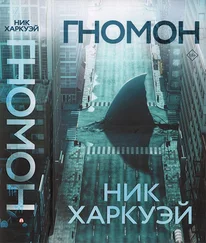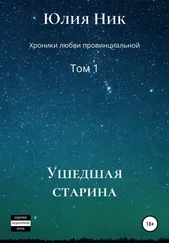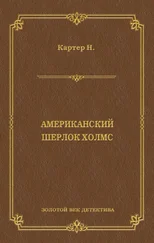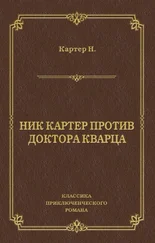He crawls on his stomach along a dry clay pipe, and tries to ignore the high-tide mark seven inches above his head. He can smell it all around: water which has been and gone, and water which is in the adjoining pipes, water welling up through the floor. He tries to forget, as well, that he will have to do this journey again in reverse, including the tight corner five minutes back which nearly snagged him for ever. He just pushes on towards Sharrow House, glancing from time to time at the compass which was in the side pocket of Mathew’s gangster kit.
This is the last easy way into Sharrow House: up through the floors and the pipes, catch Shem Shem Tsien in his bath and blow his machine to slag before anyone even knows what’s happening. Home in time for tea and medals and a speedy exit to a non-extradition-treaty nation with nice views.
He isn’t doing this entirely blind: the toshers have marked the pipe as traversable: long yellow streaks of enamel paint along the entryway to indicate that you can do it and it will take you somewhere but it’s not a great deal of fun. Green paint is better, blue better still. Red paint means no-go.
The pipe opens out into a shallow basin with a low roof. It’s like being on the inside of a sandwich. All around the walls are other pipes, some large, some small, emptying into this same room. He’s about to cross into the next section when he hears a shout. He turns, and sees three toshers waving. He waves back, Night Market style.
“It’s no-go,” the nearest one says as they reach him. “We’re changing the tag now.”
“What’s happened?” Joe asks.
The tosher scowls. He’s big and grey and has the face for it, his nose wrinkling like a bulldog’s. “Some muckety muck has happened,” he says, “gone and put bloody electric fences and all that in the bloody tunnel. Infrared cameras and the like. My mate’s in the hospital with taser burns and a wonky ticker. They say he’s lucky to be alive, the amount of juice it put through him. Sodding embassy or something, I should think. They’re always trouble.”
Joe nods. “Is there another way in?”
The man stares at him. “I know you.”
“I doubt it, I’m not—”
“You’re that Spork, you are. Crazy Joe.” He turns, calls over his shoulder. “Oy, lads, it’s Crazy Joe!” He looks back. “Come on, then, what’d you really do? Pinch the Queen’s knickers, was it? Rob the Bank of England?”
“Nothing like that—”
“Bet it was. I knew your dad, back in the day. Well, you’re a right ’un, I can see that. Anyone can see that. You a killer? Bollocks, is what it is. He’s took the bullion from the vault, I reckon,” he opines to the man behind him.
The other man nods. “Likely.”
“So this house, you want in?” The first tosher gestures vaguely up and back.
“Yes, very much.”
“Well, not from down here. It’s all the same, all the way round. The Tosh Herself is hopping mad, I will say.”
Joe ponders this for a moment, and looks around at the nexus of pipes in which they stand.
“You know,” he says, carefully, “that Sharrow House has a moat?”
“A moat ?”
“Seriously.”
“Well, la-di-dah.”
“And it occurs to me that Herself might want to do something about that. ‘Block the Beat, the Beat blocks you,’ isn’t that what they say?”
“They do.”
“Well, suppose somehow the pipes got all messed up and the supply for the pipe were to rupture… or maybe some high-pressure mains were diverted at just the right moment…”
“Oh,” the tosher says, “I see. Yes. Do you think that would be upsetting for the muckety muck?”
“I do.”
“That amount of water could pack quite a wallop, you know. Dangerous to mess around with. You could get the moat sort of spreading itself all over the place.”
Everyone’s grinning now.
“That would be,” one of the other toshers says neutrally, “really distracting. If some bloke were thinking of robbing the place.”
“That’s true,” the first man agrees. “Is there a particular moment, Mr. Spork, when you might think, with your unique understanding of the criminal mind, that such a heinous act might be perpetrated?”
“I wouldn’t want to speculate,” Joe says. “But roughly, if I had to guess, 2 a.m. the day after tomorrow, and then run like hell.”
XVII
Back on track;
the Old Campaigners;
the Chairman declines to assist a wanted felon.
Back in the brewery basement, Joe stares down a long, wide gallery at a row of mannequins wearing army-surplus and thrift-shop clothes, posed in a variety of aggressive stances. Bald, blind enemies. Behind and beside them, boxes, boards and water barrels protect the brick. Mathew gave his stolen space over to practice; this was where he brought his boys before a caper to sharpen up, and the dim yellow electric bulbs they installed—running, of course, on pilfered current—are still hanging from the ceiling.
By now, if he is honest, he had assumed he would have a plan: a bold, deranged plan, both cunning and explosive, which would outwit and outgun the Opium Khan’s soldiers and get them into Sharrow House. He had daydreamed himself coming up through the drains with an army, descending from the tower with the Fifth Floor Men, stepping from behind a curtain to reveal that he had bribed the butler.
Instead, he has nothing. A blueprint which exposes only strength; a promise of assistance with something which isn’t really a big problem; a gun, a girl, and a lawyer.
In the semi-dark, he grins. That last part, at least, is completely authentic gangstery.
He opens the trombone case and looks at the gun. Shiny, oiled metal gleams up at him. He waits for revelation, but doesn’t feel it. The gun is, after all, just a gun; an outdated, inaccurate piece of battlefield weaponry beloved of bootleggers in the United States during Prohibition time. And to be honest, it’s more a prop than a piece of ordnance. There are—there were even in Mathew’s day—better guns; lighter, faster, deadlier guns.
He unpacks it, lets his hands assemble the pieces. Click, twist, clunk. Rudimentary. Obvious. Not crude, just simple. In fact, it’s an elegant thing, in its way. He pantomimes: You’ll never take me alive, copper!
Less funny than it might be.
More carefully, he lifts the gun to his shoulder, selects the single-shot option and aims down the gallery. He breathes out, relaxes the tension in his body and then prepares to receive the impacts which will follow. Looking along the barrel, he keeps both eyes open, captures a mannequin in the V of the rear sight. He aims for the body, having no delusions of competence. He lets himself feel the moment. Young Joe, after all, wanted this more than anything else, in the world, ever, and somehow was never permitted.
He pulls the trigger.
The noise is stunning. A jet of flame spears out from the muzzle and the butt slams against his body. The shot whines away into the dark. Gritting his teeth, he fires five more times, having some notion that six is a marksman’s number, and walks down to look at the damage.
There is none. The mannequins are unscathed. Behind them, his bullets have splintered boards and chipped stone.
He stares at the gun in his hands, and wonders if he will cry. Instead, he walks back to his stool and sits, smelling pointless gun smoke.
He has no idea what to do. This was supposed to lift him up. Instead, it has smashed him, at this late date and with the fate of the world apparently hanging in the balance.
So he sits, and stares at nothing.
“Need some help?” Polly Cradle asks.
Читать дальше
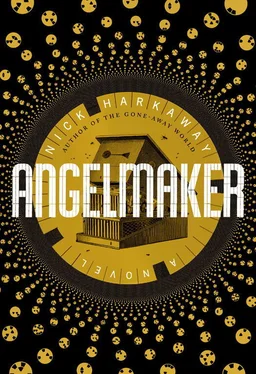

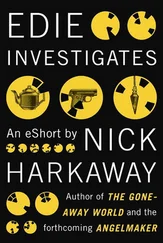
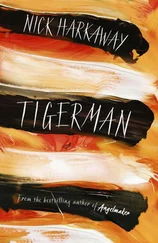
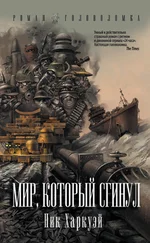
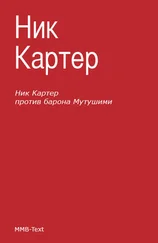
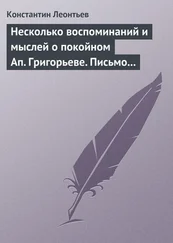
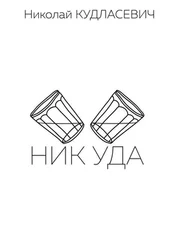
![Ник Харкуэй - Гномон [litres]](/books/400023/nik-harkuej-gnomon-litres-thumb.webp)
